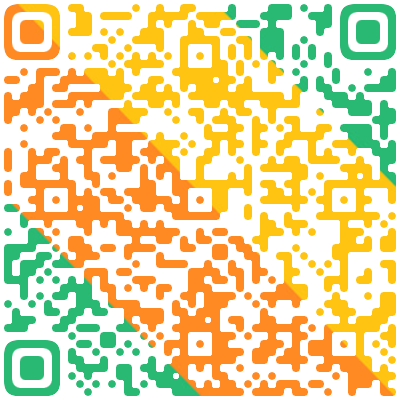相关试题
换一换


Pillow的安装命令是pip install Pillow。
答案
I want a pillow please. Pillow的意思是()
A.枕头 B.棉被 C.床单 D.飞行
答案
pillow()
A.柱子 B.药片 C.枕头
答案
Python扩展库()和pillow提供了图像处理功能。
答案
In the terrible dream he found himself on the surface of a strange animal but it ______ to be his own pillow
A.turned out B.turned over C.turned down D.turned off
答案
pillow库可以完成图像归档和图像处理的功能
答案
The young man was so tired that he fell()(sleep) the moment his head touched the pillow.
答案
memory pillow cost me a lot of money— Did it Well, that doesn’t matter ___ it helps yourelax and have a good sleep
A.was going to B.would C.did D.had
答案
memory pillow cost me a lot of money.— Did it Well, that doesn’t matter ___ it helps yourelax and have a good sleep.
A.so far as B.so long as C.as well as D.as good as
答案
The memory pillow cost me a lot of money.— Did it? Well, that doesn’t matter ___ it helps you relax and have a good sleep.
A.so far as B.so long as C.as well as D.as good as
答案
热门试题
Unwilling to wake up her sound sleeping husband, she ______ a note, telling him that she would come back very late, and put it under his pillow.
28.The comedy Tooth Fairy is based on the story all western children know: If a kid leaves a tooth under their pillow, they’ll receive a visit from the tooth fairy, who takes the tooth and leaves a gift ________
The number of Americans who read books has been declining for thirty years, and those who do read have become proud of, even a bit over-identified with, the enterprise. Alongside the tote bags you can find T-shirts, magnets, and buttons printed or sewn with covers of classic novels; the Web site Etsy sells tights printed with poems by Emily Dickinson. A spread in The Paris Review featured literature-inspired paint-chip colors. The merchandising of reading has a curiously undifferentiated flavor, as if what you read mattered less than that you rea D. In this climate of embattled bibliophilia, a new subgenre of books about books has emerged, a mix of literary criticism, autobiography, self- help, and immersion journalism: authors undertake reading stunts to prove that reading--anything--still matters. "I thought of my adventure as Off-Road or Extreme Reading," Phyllis Rose writes in "The Shelf: From LEQ to LES" , the latest stunt book, in which she reads through a more or less random shelf of library books. She compares her voyage, to Ernest Shackleton"s explorations in the Antarctic. "However, I like to sleep under a quilt with my head on a goose down pillow," she writes. "So I would read my way into the unknown--into the pathless wastes, into thin air, with no reviews, no best-seller lists, no college curricula, no National Book Awards or Pulitzer Prizes, no ads, no publicity, not even word of mouth to guide me."She is not the first writer to set offon armchair expedition.A. J. Jacobs, a self-described "human guinea pig", spent a year reading the encyclopedia for "The Know-It-All: One Man"s Humble Quest to Become the Smartest Person in the World" (2004). Ammon Shea read all of the Oxford English Dictionary for his book "Reading the OED: One Man, One Year, 21730 Pages" (2008). In "The Whole Five Feet" (2010), Christopher Beha made his way through the Harvard Classics during a year in which he suffered serious illness and had a death in the family. In "Howar
The number of Americans who read books has been declining for thirty years, and those who do read have become proud of, even a bit over-identified with, the enterprise. Alongside the tote bags you can find T-shirts, magnets, and buttons printed or sewn with covers of classic novels; the Web site Etsy sells tights printed with poems by Emily Dickinson. A spread in The Paris Review featured literature-inspired paint-chip colors. The merchandising of reading has a curiously undifferentiated flavor, as if what you read mattered less than that you rea D. In this climate of embattled bibliophilia, a new subgenre of books about books has emerged, a mix of literary criticism, autobiography, self- help, and immersion journalism: authors undertake reading stunts to prove that reading--anything--still matters. "I thought of my adventure as Off-Road or Extreme Reading," Phyllis Rose writes in "The Shelf: From LEQ to LES" , the latest stunt book, in which she reads through a more or less random shelf of library books. She compares her voyage, to Ernest Shackleton"s explorations in the Antarctic. "However, I like to sleep under a quilt with my head on a goose down pillow," she writes. "So I would read my way into the unknown--into the pathless wastes, into thin air, with no reviews, no best-seller lists, no college curricula, no National Book Awards or Pulitzer Prizes, no ads, no publicity, not even word of mouth to guide me."She is not the first writer to set offon armchair expedition.A. J. Jacobs, a self-described "human guinea pig", spent a year reading the encyclopedia for "The Know-It-All: One Man"s Humble Quest to Become the Smartest Person in the World" (2004). Ammon Shea read all of the Oxford English Dictionary for his book "Reading the OED: One Man, One Year, 21730 Pages" (2008). In "The Whole Five Feet" (2010), Christopher Beha made his way through the Harvard Classics during a year in which he suffered serious illness and had a death in the family. In "Howar
The number of Americans who read books has been declining for thirty years, and those who do read have become proud of, even a bit over-identified with, the enterprise. Alongside the tote bags you can find T-shirts, magnets, and buttons printed or sewn with covers of classic novels; the Web site Etsy sells tights printed with poems by Emily Dickinson. A spread in The Paris Review featured literature-inspired paint-chip colors. The merchandising of reading has a curiously undifferentiated flavor, as if what you read mattered less than that you rea D. In this climate of embattled bibliophilia, a new subgenre of books about books has emerged, a mix of literary criticism, autobiography, self- help, and immersion journalism: authors undertake reading stunts to prove that reading--anything--still matters. "I thought of my adventure as Off-Road or Extreme Reading," Phyllis Rose writes in "The Shelf: From LEQ to LES" , the latest stunt book, in which she reads through a more or less random shelf of library books. She compares her voyage, to Ernest Shackleton"s explorations in the Antarctic. "However, I like to sleep under a quilt with my head on a goose down pillow," she writes. "So I would read my way into the unknown--into the pathless wastes, into thin air, with no reviews, no best-seller lists, no college curricula, no National Book Awards or Pulitzer Prizes, no ads, no publicity, not even word of mouth to guide me."She is not the first writer to set offon armchair expedition.A. J. Jacobs, a self-described "human guinea pig", spent a year reading the encyclopedia for "The Know-It-All: One Man"s Humble Quest to Become the Smartest Person in the World" (2004). Ammon Shea read all of the Oxford English Dictionary for his book "Reading the OED: One Man, One Year, 21730 Pages" (2008). In "The Whole Five Feet" (2010), Christopher Beha made his way through the Harvard Classics during a year in which he suffered serious illness and had a death in the family. In "Howar
The number of Americans who read books has been declining for thirty years, and those who do read have become proud of, even a bit over-identified with, the enterprise. Alongside the tote bags you can find T-shirts, magnets, and buttons printed or sewn with covers of classic novels; the Web site Etsy sells tights printed with poems by Emily Dickinson. A spread in The Paris Review featured literature-inspired paint-chip colors. The merchandising of reading has a curiously undifferentiated flavor, as if what you read mattered less than that you rea D. In this climate of embattled bibliophilia, a new subgenre of books about books has emerged, a mix of literary criticism, autobiography, self- help, and immersion journalism: authors undertake reading stunts to prove that reading--anything--still matters. "I thought of my adventure as Off-Road or Extreme Reading," Phyllis Rose writes in "The Shelf: From LEQ to LES" , the latest stunt book, in which she reads through a more or less random shelf of library books. She compares her voyage, to Ernest Shackleton"s explorations in the Antarctic. "However, I like to sleep under a quilt with my head on a goose down pillow," she writes. "So I would read my way into the unknown--into the pathless wastes, into thin air, with no reviews, no best-seller lists, no college curricula, no National Book Awards or Pulitzer Prizes, no ads, no publicity, not even word of mouth to guide me."She is not the first writer to set offon armchair expedition.A. J. Jacobs, a self-described "human guinea pig", spent a year reading the encyclopedia for "The Know-It-All: One Man"s Humble Quest to Become the Smartest Person in the World" (2004). Ammon Shea read all of the Oxford English Dictionary for his book "Reading the OED: One Man, One Year, 21730 Pages" (2008). In "The Whole Five Feet" (2010), Christopher Beha made his way through the Harvard Classics during a year in which he suffered serious illness and had a death in the family. In "Howar
The number of Americans who read books has been declining for thirty years, and those who do read have become proud of, even a bit over-identified with, the enterprise. Alongside the tote bags you can find T-shirts, magnets, and buttons printed or sewn with covers of classic novels; the Web site Etsy sells tights printed with poems by Emily Dickinson. A spread in The Paris Review featured literature-inspired paint-chip colors. The merchandising of reading has a curiously undifferentiated flavor, as if what you read mattered less than that you rea D. In this climate of embattled bibliophilia, a new subgenre of books about books has emerged, a mix of literary criticism, autobiography, self- help, and immersion journalism: authors undertake reading stunts to prove that reading--anything--still matters. "I thought of my adventure as Off-Road or Extreme Reading," Phyllis Rose writes in "The Shelf: From LEQ to LES" , the latest stunt book, in which she reads through a more or less random shelf of library books. She compares her voyage, to Ernest Shackleton"s explorations in the Antarctic. "However, I like to sleep under a quilt with my head on a goose down pillow," she writes. "So I would read my way into the unknown--into the pathless wastes, into thin air, with no reviews, no best-seller lists, no college curricula, no National Book Awards or Pulitzer Prizes, no ads, no publicity, not even word of mouth to guide me."She is not the first writer to set offon armchair expedition.A. J. Jacobs, a self-described "human guinea pig", spent a year reading the encyclopedia for "The Know-It-All: One Man"s Humble Quest to Become the Smartest Person in the World" (2004). Ammon Shea read all of the Oxford English Dictionary for his book "Reading the OED: One Man, One Year, 21730 Pages" (2008). In "The Whole Five Feet" (2010), Christopher Beha made his way through the Harvard Classics during a year in which he suffered serious illness and had a death in the family. In "Howar



 使用微信扫一扫登录
使用微信扫一扫登录